Triffids - In the Pines/Calenture
by John Clarkson
published: 7 / 1 / 2007
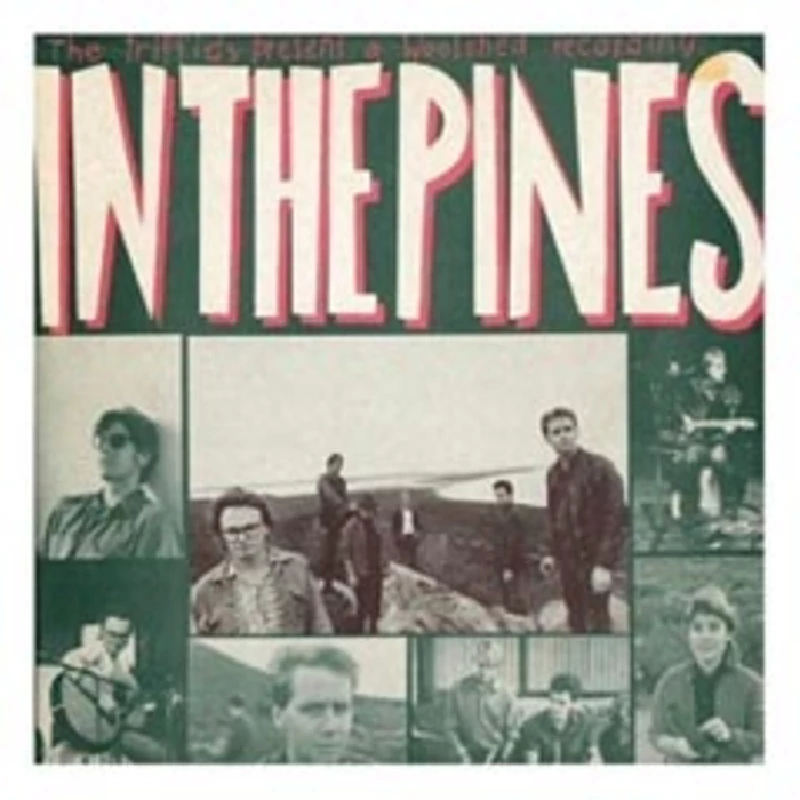
intro
John Clarkson examines the reissues and legacy of Australian group the Triffids'1986 and 1987 albums, 'In the Pines' and 'Calenture'
When David McComb died in broken health two weeks short of his 37th birthday in February 1999, he thought that the Triffids, the 80’s band in which he had sung lead vocals and played guitar, had been largely forgotten. Eight years on from his untimely death, the nomadic Australians’ legacy, like that of the Velvet Underground fifteen years on from their demise, is gradually being restored. The surviving members of the Triffids, Jill Birt (keyboards, vocals), Martyn Casey (bass), Graham Lee (pedal and lap steel guitar, vocals), Alsy MacDonald (drums, vocals) and McComb’s brother Robert (violin, guitar, vocals), reformed last June for the first time since the band broke up in late 1989 to play two shows at Hasselt in Belgium to coincide with the opening of a Triffids exhibition there. They then travelled on to play a further show in Amsterdam, and to London to attend the unveiling of a plaque, to commemorate the recording of the band’s third album and masterpiece, ‘Born Sandy Devotional (1985)’, on the wall of the now defunct Farringdon studio at which it was made. A biography of the band, ‘Save What You Can :The Day of the Triffids and the Long Night of David McComb’ by Bleddyn Butcher, an Australian music writer and the band’s one-time photographer, is due to be published shortly by the rock book publishers’ Helter Skelter. The Domino record label meanwhile in an eighteen month rolling programme is re-releasing in remastered versions all six of the Triffids’ studio albums with either extra tracks or CDs of lost and demo recordings upon each. Domino began last year by re-releasing ‘Born Sandy Devotional’ to coincide with the Triffids’ brief reformation, and has now followed this with their fourth and fifth albums, ‘In the Pines’ (1986) and ‘Calenture’ (1987), both of which will came out on the 5th February, two days after the anniversary of McComb’s death. The band’s remaining three albums, their first and second records, ‘Treeless Plain’ (1983) and ‘Raining Pleasure’ (1984), and their last album, ‘The Black Swan’, will all follow later this year. Of all the Triffids’ albums, ‘In the Pines’ and ‘Calenture’, the former recorded in five days on an eight track tape machine in a one-time sheep shearing shed 600 kms south east of Perth, and the latter recorded over four months in expensive studios in London, Liverpool and Bath, are the two that are the most contrasting. Although both very different from one another, each is a natural successor to the lush and eerily panoramic ‘Born Sandy Devotional’, whose songs told of tortured, unrequited love affairs and of the arid, sweltering heat and isolation of the desert that runs directly behind the band’s native home town of Perth. After many months spent away from Australia recording the wide scope and epic ‘Born Sandy Devotional’ and then touring it across Europe, ‘In the Pines’ found the band returning to their semi-acoustic roots and the country and folk sound of much of their first two albums. The old shearing station upon which it was recorded was part of an expansive property owned by the McCombs’ parents, both of whom were well-off doctors. A budget itinerary that appears on the sleeve of ‘In the Pines’ reveals both the lo-fi nature of its recording and also the spirit in which it was made. Of the total budget of $1190 Australian dollars, the biggest expense was $340 for beer, wine and vodka, superseding the bill for food of $310 and also the $300 dollars for recording equipment hire and $240 for petrol. As Graham Lee revealed in an extensive interview with Pennyblackmusic last year about its recording, “it was just an idea that had been kicking around for some time. We had some time to do it and it was something that didn’t involve a huge effort to do. If it didn’t work, it didn’t work. It didn’t matter. It was something of a holiday really. At the very least we would have had a chance to play the songs and if it didn't work out have demoed some songs for the next album. It was just something that we did and which turned out to be releasable.” A complaint made by more than one critic about the ‘In the Pines’ is that, not only was it recorded in a wool shed, but it also sounded like it. Its remastering has, however, crispened much of its previously muddied sound, and, for all its ramshackle lo-fi ness, it makes a fascinating testimony, finding the Triffids, a band usually known for their intensity, finally stopping to unwind at the end of a long and arduous touring schedule and at their most relaxed. Much of the subject matter on ‘In the Pines’, like that of the Triffids’ other albums, is nevertheless very dark . The elements were often a crucial ingredient in Triffids’ songs, and the rustic, barbed rock of the mysterious opener ‘Suntrapper’ describes the effect of a great storm on an isolated town, and the disappearance in it of the narrator’s sister. Whether the storm has actually happened, or whether a stranger has appeared like a cyclone in the remote community and captivated her away with promises of something better elsewhere is kept deliberately, spinechillingly elusive (“It came out of the southern sky/It drove into our humble town/We lay our hands upon its side/My sister she lay her body down/And she was gone gone gone ”). The hapless protagonist of the abrasive, jangling ‘Kathy Knows’ falls prey to a femme fatale who evens wears the same clothes as a previous love (“I could burn my hand/and feel no pain/I burned my hand in Kathy’s flame/Pulled it out and stuck it in again”). Both in the spooky, juddering sound effects and taut lyrical subject matter of murder ballad ‘Just Like Fade Away’ (“If I take a walk by the riverside/You might end up drowning/With your hands all tied/Might take a fall, could break your neck/You just don’t know what to expect/You might just fade away”), one can meanwhile see where the likes of the Willard Grant Conspiracy, the Tindersticks and Nick Cave (whose Bad Seeds Martyn Casey would eventually join) , each of whom have acknowledged the Triffids’ influence, developed some of their inspiration from. Yet for all this blackness there is often much humour too. The sound of band members chatting and laughing amongst themselves in between some of the songs and counting each other at the start of tunes has been left on, giving ‘In the Pines’ am elementary charm. “Take 72” says David McComb at the start of the one and a half minute ‘Only One Life’, a folk homily about taking every chance in life. ‘Once a Day’, obviously recorded at the end of a long, happy drunken day, is a cover of an old Bill Anderson song, and, featuring Graham Lee in a rare turn of lead vocals, is a stomping country number with waltzing fiddles, hand claps and whooping backing harmonies. The album closer, ‘Love and Affection’, meanwhile features a tingling riff which is reminiscent of the Velvet Underground’s “Sweet Jane’ and a mock Al Green-style vocal from McComb about the durability and lasting power of love (“Sweet sweet hail of devotion/Pointed by my emotion/I called your name/I called your name”). Recorded hastily and cheaply, and on surface appearances something of a throwaway record, ‘In the Pines’ is often derided as being the runt amongst the litter of Triffids’ albums, yet carries a lasting weight and depth. It has taken 20 years, but, with acoustic and folk rock far more fashionable now than in the mid 80’s, it has aged surprisingly well, and stands up far better now than it did at the time. In the time between recording it and ‘Calenture’, the Triffids switched labels from their original base of Sydney-based label Hot Records to sign a major contract with the internationally prolific Island Records. ‘Calenture’ is often seen resultingly as being the Triffids’ big budget album, their one stab at commerciality and attempt at breakthrough into the mainstream. Somewhat bombastic in tone and over produced by Gil Norton who had also worked on ‘Born Sandy Devotional’ and before that Echo and the Bunnymen’s ‘Ocean Rain’, no expense was certainlyspared on it. Lavish and plush to the point of its sound becoming occasionally constipated, it features strings, brass and wood wind players along with other session musicians and, as it is described on the sleeve, “thousands of others too gifted to mention”. Yet, despite using production methods more closely associated at the time with the likes of stadium bands such as INXS, Simple Minds and U2 , ‘Calenture’, which as a result now seems more of a period piece than ‘In the Pines’ and slightly dated , is oddly uncommercial. It takes its name from an archaic word used by Victorians to describe, as again listed on the sleeve, a “tropical fever or delirium suffered by sailors after long periods away from the land, who imagine the seas to be green fields and desire to leap into them.” The band at that stage were spending half of the year touring and recording in Europe, and half back home in the Southern Hemisphere, and a sense of dislocation pervades the whole record. The characters David McComb describes in his lyrics are nearly all disorientated, out of sorts and kilter with the world and, while never less than melodic,a lot of the music is similarly unsettled. There are, especially in the latter half of the album, jarring sound effects and sudden lurching eruptions of noise. Instruments surge out of nowhere into the mix and then away again. With the degree of hindsight that two decades bring, it is not surprising for all the expansiveness of its sound and despite the amount of money spent on it that, like all the other Triffids’ records, ‘Calenture’ sold poorly. As Graham Lee also told Pennyblackmusic, “I think we were just allergic to playing the game.” The opening track ‘Bury Me Deep in Love’, which was used as the soundtrack for Harold and Madge Bishop’s wedding in the long running Australian teatime soap opera ‘Neighbours’, stiffed as a single, but is possibly the Triffids’ best known song, and, with its chiming guitars, choral vocals, and sweeping orchestrations, is one of their poppiest . Yet its lyrics in fact belie a rather dark narrative in which a climber falls to his death off a precipice (“When a lonesome climbing fugure/slips and loses grip/Tumbles into a crevice/To his icy mountain crypt/Bury him deep in love”), and the congregation of a chapel (“nestled among the ghost of the pines”) prays not only for guidance from above, but also for the lost souls of the mountain top. The breezy ‘Trick of the Light’, another failed single and an attempt at a pop number, pushes Jill Birt’s cascading, gorgeous keyboards to the fore, but again has a bleak undercurrent. Its narrator tells of his hapless, increasingly desperate search for a lost love (“Well the rim of her mouth was golden/Her eyes were just desert sands/But that’s not her/That’s just the light/It’s only an image of her/It’s just a trick of the light”), but when he does finally find her after she sends him a letter, after not quite able to let him go either, he beats her to pulp just like old times, his regular beatings being the reason for her disappearance in the first place (“I was beating on her like an anvil/Beating her out of original shape/With that same old panic caught on her face”). The protagonist of the sinister, thrusting Old Testamant style blues of ‘Home Town Farewell Kiss’, recorded in another version on ‘In the Pines’ as ‘One Soul Less on Your Fiery List’ , has returned to his home town out of revenge and to set it on fire (“Now it blazes for me house by house/And my legs they buckle under me/But I don’t mind, I sing the old song of joy/For I know why and why it had to be”). On the growling, discordantly abrasive blues punk of ‘Vagabond Ways’ the narrator has become lost even to himself after his lover has abandoned him (“When you left I almost disappeared/Now you’ve gone/I’m not quite here”), while on the Celtic folk of ‘Jerdacuttup Man’, which features a suddenly surging bagpipe, McComb adopts the persona of a centuries dead skeleton found at an archaeological dig (“I live under glass in the British museum/I am wrinkled and black/I am ten thousand years”). The Triffids, with their almost biblical stories in which man battled both against himself and the elements, were never going to be conventional popular fare. Although not quite as consistent as ‘Born Sandy Devotional’, and each album to a degree (and ‘Calenture’ in particular) marred by their wobbly production values, both of these CDs nevertheless have a lot to offer the serious and discerning rock fan. The Triffids remain one of Australia’s most charismatic acts. With their and the late David McComb’s achievements at last beginning to receive the acknowledgment they deserve, their stature will hopefully continue to grow with the release of these recordings.
Picture Gallery:-
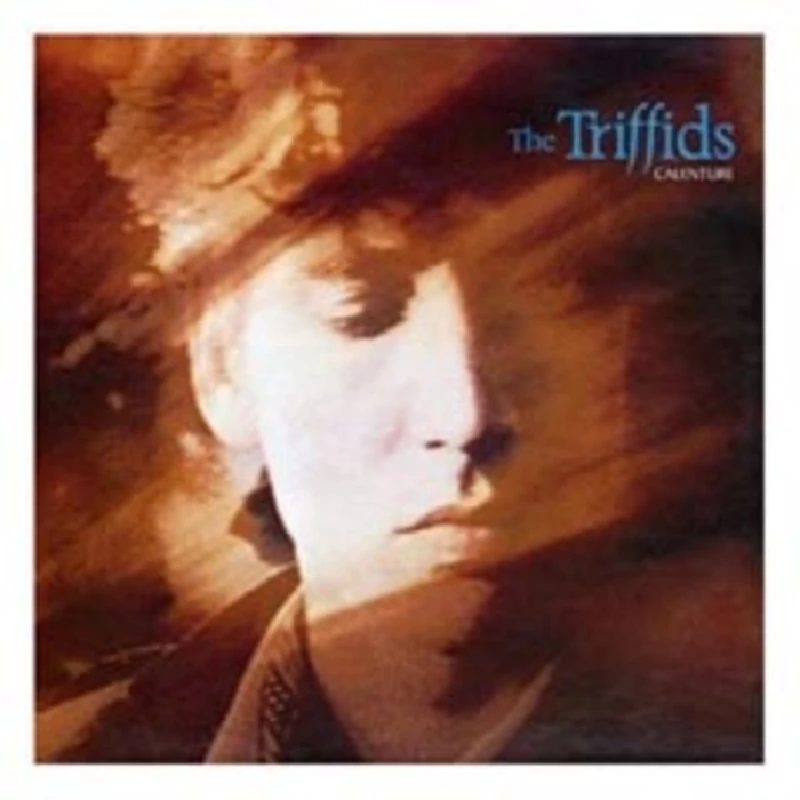
interviews |
|
Interview (2006) |
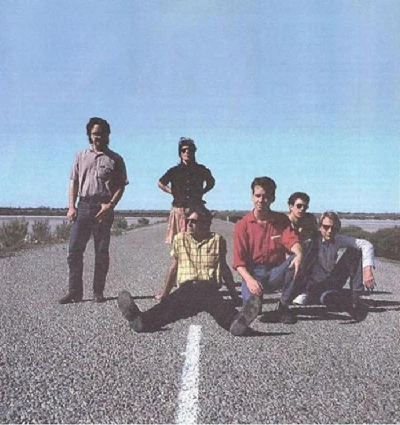
|
| Underrated in their lifetime 80's Australian group the Triffids are in the process of having all six of their albums reissued. John Clarkson talks to he group's pedal steel player and historian Graham Lee about the band's legacy |
live reviews |
|
Barbican, London, 9/4/2010 |

|
| Little known in their original lifetime in the 1980's but now much acclaimed, Anthony Strutt at the Barbican in London sees the surviving member of Australian group the Triffids play a heartfelt, but over lengthy tribute to their former and late singer David McComb |
favourite album |
|
Born Sandy Devotional (2006) |
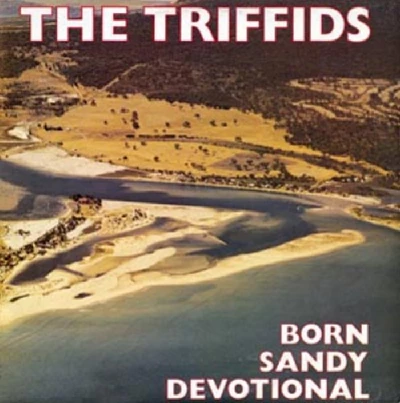
|
| In the latest in our 'Re : View' series, in which our writers re-examine albums from the past, John Clarkson looks at Australian group the Triffids' haunting 1986 masterpiece 'Born Sandy Devotional', which has just been reissued |
reviews |
|
Wide Open Road: The Best of the Triffids (2010) |
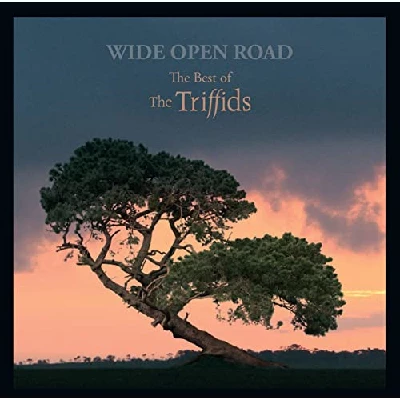
|
| Excellent compilation and also introduction to highly regarded 80's Australian band the Triffids |
most viewed articles
current edition
Tossing Seed - InterviewWaterboys - Roundhouse, London, 1/6/2025
Last of the Lovely Days - Interview
Brian Wilson - 1942-2025
Cary Baker - Down on the Corner: Adventures in Busking and Street Music
Lemonheads - O2 Ritz, Manchester, 16/8/2025
Morrissey - Photoscapes
Belouis Some - Video Vault
Motorcycle Boy - Interview
Robert Forster - Interview
previous editions
Flip Side - Raging PagesStereogram Revue - Voodoo Rooms, Edinburgh, 2/12.2015
Bob Mould - Brooklyn Bowl, O2 Academy, London, 11/2/2016
John Clarkson - A Life in Music
Bill Hicks - Profile
Ain't That Always The Way - Alan Horne After The Sound of Young Scotland 2
School - Interview
Miscellaneous - Minehead, Somerset, 8/5/2009...10/5/2009
That Petrol Emotion - That Petrol Emotion, Town and Country Club, London, 1988
Dave Greenfield - 1949-2020
most viewed reviews
current edition
Liarbilitys - VandalheartKirk Adams and Ed Woltil - Eat The Sunshine, Drink The Starshine
Big Flame - Peel Sessions 84-86
Wolf Alice - The Clearing
Silver Biplanes - Coming Up For Air
Good Charlotte - Motel du Cap
Bruce Dickinson - More Balls to Picasso
Suzie Ungerleider - Among The Evergreens
Phew, Erika Kobayashi,, Dieter Moebius - Radium Girls
Rupert Wates - Father to the Man
Pennyblackmusic Regular Contributors
Adrian Janes
Amanda J. Window
Andrew Twambley
Anthony Dhanendran
Benjamin Howarth
Cila Warncke
Daniel Cressey
Darren Aston
Dastardly
Dave Goodwin
Denzil Watson
Dominic B. Simpson
Eoghan Lyng
Fiona Hutchings
Harry Sherriff
Helen Tipping
Jamie Rowland
John Clarkson
Julie Cruickshank
Kimberly Bright
Lisa Torem
Maarten Schiethart